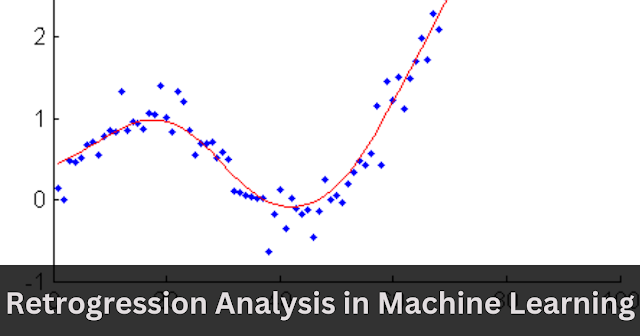In today's rapidly evolving technological landscape, machine learning has emerged as a powerful force that is revolutionizing various industries. From healthcare and finance to transportation and entertainment, machine learning is making its mark by transforming the way we live, work, and interact with technology. This article explores the profound impact of machine learning and its potential to shape the future of technology.
1. Introduction
In recent years, machine learning has gained significant attention as a subset of artificial intelligence (AI) that focuses on developing algorithms capable of learning from and making predictions or decisions based on data. This technology has revolutionized traditional computing by enabling computers to analyze vast amounts of data and extract meaningful insights without being explicitly programmed.
2. What is Machine Learning?
It involves the development of algorithms and models that can recognize patterns, make predictions, and automate complex tasks by leveraging vast datasets. Machine learning algorithms are designed to learn from historical data and improve their performance over time through iterative processes.
3. Applications of Machine Learning
Machine learning has found applications in numerous fields, driving innovation and improving efficiency. Some notable applications include:
3.1 Healthcare
Machine learning algorithms are being utilized in the healthcare industry to assist in disease diagnosis, drug discovery, personalized treatment plans, and medical image analysis. By analyzing vast amounts of patient data, these algorithms can provide accurate predictions and improve patient outcomes.
3.2 Finance
These applications help financial institutions make data-driven decisions, detect anomalies, and optimize investment strategies.
3.3 Transportation
Machine learning plays a vital role in autonomous vehicles, optimizing traffic flow, predictive maintenance, and route planning.
3.4 Entertainment
Recommendation systems powered by machine learning algorithms are transforming the entertainment industry. Streaming platforms, such as Netflix and Spotify, leverage user data to deliver personalized recommendations, enhancing user experience and engagement.
4. Machine Learning Algorithms
Machine learning encompasses various algorithms that enable computers to learn and make predictions. Some common machine learning algorithms include:
4.1 Supervised Learning
Supervised learning algorithms learn from labeled datasets, making predictions or decisions based on previously seen examples. This type of learning is useful for tasks like classification and regression.
4.2 Unsupervised Learning
Unsupervised learning algorithms identify patterns and structures in unlabeled data. They are used for tasks such as clustering and dimensionality reduction.
5. The Role of Big Data
Big data plays a crucial role in the success of machine learning. The availability of large datasets allows machine learning algorithms to learn complex patterns and make accurate predictions. By leveraging big data, organizations can unlock valuable insights and gain a competitive edge.
6. Advancements in Machine Learning
The field of machine learning is constantly evolving, with new advancements pushing the boundaries of what is possible. Some notable advancements include:
6.1 Explainable AI
This helps build trust and enables humans to understand and validate the decisions made by AI systems.
7. Challenges and Ethical Considerations
While machine learning offers tremendous potential, it also presents challenges and ethical considerations. Some key challenges include data quality, bias in algorithms, privacy concerns, and job displacement. It is crucial to address these challenges and ensure the responsible and ethical use of machine learning technologies.
8. Future Implications of Machine Learning
The future implications of machine learning are vast and exciting. As the technology continues to advance, we can expect significant transformations in various industries. From personalized healthcare and intelligent virtual assistants to self-driving cars and predictive maintenance, machine learning will shape the future of technology in unprecedented ways.
9. Conclusion
Machine learning has emerged as a game-changing technology with the power to revolutionize the future of technology. Its ability to analyze vast amounts of data, make accurate predictions, and automate complex tasks has already had a significant impact across industries. However, as we embrace the potential of machine learning, it is crucial to address challenges and ensure ethical considerations are met to maximize its benefits.
FAQs
Q1: How is machine learning different from artificial intelligence?
Machine learning is a subset of artificial intelligence that focuses on developing algorithms capable of learning from data and making predictions. Artificial intelligence, on the other hand, encompasses a broader scope and aims to develop systems that can mimic human intelligence and perform tasks that typically require human intelligence.
Q2: Is machine learning only applicable to large organizations?
No, machine learning is not limited to large organizations. With advancements in technology and the availability of open-source tools, machine learning has become more accessible to smaller businesses and individuals.
Q3: Can machine learning replace human decision-making?
Machine learning can automate certain decision-making processes and assist humans in making better decisions. However, the ultimate decision-making authority rests with humans, and machine learning should be seen as a tool to augment human intelligence rather than replace it.
In conclusion, machine learning is revolutionizing the future of technology by unlocking new possibilities and transforming various industries. With its ability to analyze data, make predictions, and automate tasks, machine learning is shaping a world where technology adapts and learns from its surroundings. As we embrace this transformative technology, it is vital to navigate its challenges and ensure responsible and ethical use to fully harness its potential.

.png)

.png)
.png)
.png)
.png)
0 Comments